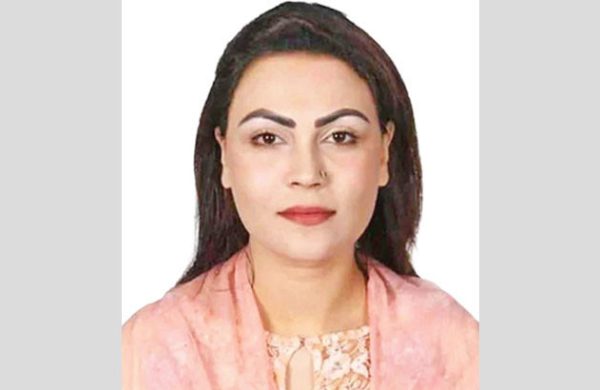Begum Rokeya : A Trailblazer for Women’s Education and Islamic Feminism
- Update Time : Monday, December 9, 2024

—Saiful Islam—
Begum Rokeya (1880–1932) was a notable social reformer and trailblazer for women’s rights in colonial Bengal. She wielded her pen at a time when Bengali Muslim women were confined to their homes and only ventured out for urgent reasons. She founded the Sakhawat Memorial Girls’ School. Rokeya often grounded her advocacy for women’s education in Islamic teachings, framing her arguments in ways that resonated with both cultural and religious sensibilities.
In colonial times, when literacy rates among Muslim women were exceptionally low, Rokeya’s feminist interpretation of Islam as a proponent of women’s intellectual empowerment was groundbreaking. Her perspective aligns with modern Islamic feminism, which aims to reinterpret Islamic teachings to promote gender equality. Rokeya’s vision continues to hold relevance in contemporary Bangladesh, where notable strides have been made in girls’ education, yet issues such as gender inequality, early marriage, and school dropout rates remain big challenges.
Begum Rokeya : A Trailblazer for Women’s Education and Islamic FeminismWe observe Rokeya Day on 9 December every year. This year, like previous years, Begum Rokeya University has commemorated Rokeya Day with daylong activities aimed at honouring and spreading Rokeya’s beliefs across the community.
Rokeya never eschewed religion in support of women’s liberation. Rather, she underlined that Islam fully recognises women’s rights and asked people to fully comprehend this. It is often believed in society that Begum Rokeya was against women’s purdah (veiling) or that many of her writings go against the core tenets of Islam. The truth, however, is far different. A thorough examination of her works and their underlying implications shows that she did not dissuade people from mindlessly adhering to the Quran. She advocated instead for comprehending the contents of the Quran by focusing on its connotative implications. For example – she frequently took reference from Quranic verses and hadiths that highlight the importance of seeking knowledge.
She asserted, “Teaching the Quran to Muslim girls as part of primary education is of utmost importance,” underscoring her belief in a balanced approach to learning that combines both secular and religious education.
Rokeya’s writings, including Sultana’s Dream (1905) and her essays like Padmarag (1924), vividly express her feminist philosophy. She envisioned a society where women’s education would pave the way for equality and prosperity. Drawing from the Quran’s encouragement of learning for both men and women, Rokeya spoke in favour of a society in which women can exercise the rights Islam inherently grants them — such as access to education, economic independence, and active participation in public life. She emphasised these rights as natural entitlements rather than favours. In her work Rani Bhikhharini, she highlighted the Islamic provision of Mohor (dower) as a woman’s rightful wealth, challenging societal norms that deprived women of financial independence.
In 1910, Begum Rokeya relocated to Calcutta and resumed her efforts at the Sakhawat Memorial Girls’ School. With only two benches and eight students, she personally visited households to persuade families, particularly Muslim ones, to send their daughters to school. Completely aware of the reluctance among Muslim families to allow women outside their homes even in emergencies, Rokeya assured them that the purdah system would be strictly maintained in her school. Gradually, this promise helped increase the enrollment of Muslim girls.
In 1926, she presided over what is considered the first Bengal Women’s Education Conference, advocating for women’s educational rights. At the 1930 Bengal Women’s Conference, Rokeya emphasised that education was essential for both men and women. While supporting Islamic education, she criticised traditional Quranic instruction that focused on rote memorisation without understanding. She called for Quranic education in regional languages to make it more comprehensible for all.
In her essay ‘Islam’, Rokeya explored the religion’s origins, highlighting the struggles of Prophet Muhammad (PBUH) and the critical support of his wife Khadija (RA). She praised the Prophet’s compassion, integrity, and dedication to uplifting widows and orphans, emphasising his role as “Al-Amin” (the trustworthy). Her writings reflected a deep respect for Islamic principles, urging their meaningful application in daily life rather than ritualistic adherence.
Besides, Begum Rokeya offered nuanced perspectives on purdah, privacy, and the role of women in society. She observed that less civilised people tend to wear fewer clothes, while more civilized individuals dress more modestly. In her essay ‘Burqa’, Rokeya advocated for a balanced approach to purdah, suggesting that unnecessary practices be abandoned while necessary ones be retained.
Rokeya also argued that societal progress depends on women achieving higher education and spiritual growth. Her writings frequently emphasised Islam’s progressive stance on women’s rights, contrasting it with other cultures and religions. She noted that only Islam has recognised women’s souls and granted them rightful entitlements, such as a share in inheritance and the right of Muslim wives to manage their own property independently.
At the core of Rokeya’s efforts was a commitment to ensure educational opportunities for girls. Her writings reflect her deep passion for Islam and her belief in its role as a foundation for empowering women and fostering progress.
___________________________________________
The writer is Lecturer, Department of Public Administration, Begum Rokeya University, Rangpur. Email: [email protected]



















